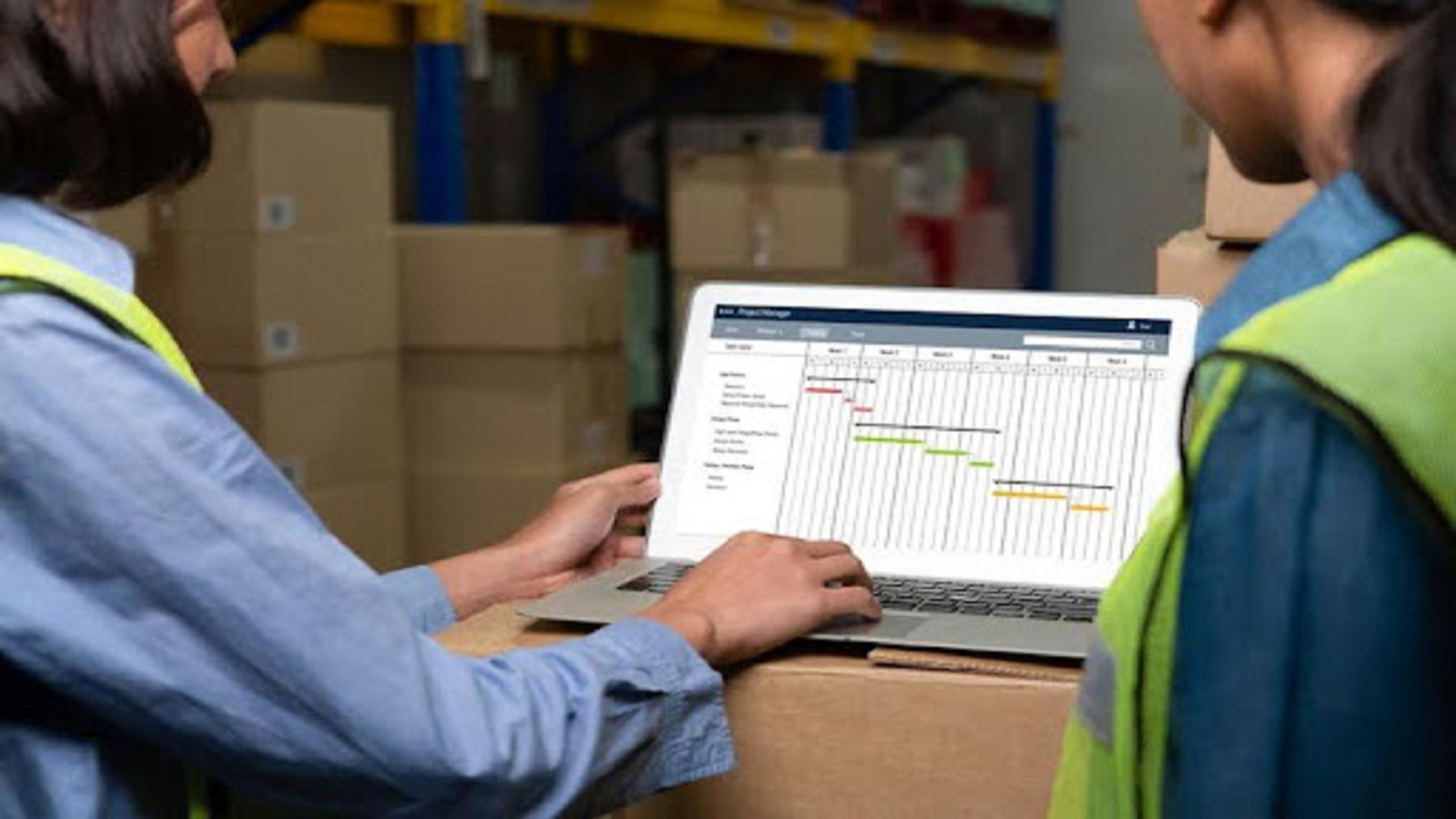
Department of Transportation SAP: Enhancing Efficiency and Compliance in Transportation
In the fast-paced world of transportation, companies and government agencies alike need to be efficient and follow the rules in order to be successful. The Department of Transportation (DOT) SAP (Substance Abuse Professional) program is very important for keeping the business safe, following the rules, and running smoothly.Never break the rules, especially when it comes to drugs. This is true whether they are going by truck, plane, train, or boat. This blog post has more information about the DOT SAP program and how it helps make transportation safer and faster.
How to Use the DOT SAP
People who work for the Department of Transportation SAP program and have broken rules about drugs or drinking can get help through the SAP program. There are rules like these that are followed by the Federal Motor Carrier Safety Administration (FMCSA) and other DOT offices to keep people and workers safe. A worker must go through the SAP process again before they can go back to work if they fail a drug or alcohol test.
The steps in the SAP process are:
1. Evaluation
A certified Substance Abuse Professional (SAP) looks at the employee’s case and decides what kind of treatment or education they need.
2. Treatment or Education: The worker goes through suggested programs like treatment, rehab, or learning about drug abuse.
3. Follow-up Evaluation: The SAP checks the employee again to see if they are ready to go back to work.
4. Return-to-Duty Test: The worker must pass a drug or alcohol test required by the DOT before they can go back to jobs that are dangerous.
5. Follow-up Testing: Random tests are given to the employee every so often for a certain amount of time to make sure they are still following the rules.
For the safety and drug-free work of the transportation business, this program is very important. People who break the rules are given the right help before they can go back to work.
Making compliance better with DOT SAP
1. Following the rules
The DOT SAP program makes sure that transportation companies follow government rules so that they don’t have to pay fines or face legal trouble. The Federal Railroad Administration (FRA), the Federal Aviation Administration (FAA), and other agencies strictly police compliance. Businesses must follow the rules in order to stay in business.
2. Making sure travel is safe
The DOT SAP program lowers the risk of accidents, improves workplace safety, and makes sure that only qualified and responsible people drive transportation vehicles by finding and helping workers who have problems with drugs.
3. Standardized Testing and Reporting
DOT rules say that all transportation areas must use the same drug and alcohol tests. The SAP program gives a structured way to keep an eye on things and send reports, making sure that everyone in the industry is honest and responsible.
4. Lessening the risk for employers
To stay out of trouble with the law, shipping companies must follow DOT rules. The SAP program helps businesses keep a “zero tolerance” policy on drug abuse, which lowers the chance of claims and lost money.
Improving Efficiency in Transportation
1. Faster rehabilitation for workers
Without the SAP process, workers who fail drug and alcohol tests would be fired for life, which would mean that there would be a lack of workers. The organized SAP program makes it possible for rehabilitation and reintegration to happen quickly, so there are fewer breaks in work.
2. Businesses have less downtime
A shipping company can’t afford to have too much downtime because of rules and regulations. Businesses can use the SAP program to effectively handle worker recovery, making sure that workers can get back to work as soon and safely as possible.
3. Made it easier for the government to do its job
These days, SAP service providers use digital tools to keep track of their employees’ progress, store evaluations, and make it easier for them to get back to work. This makes things run more easily and saves businesses time by cutting down on paperwork.
4. Friendly people at work
When SAP is run well, the workplace is safe and helpful, and people don’t have to worry about losing their jobs if they ask for help. This helps keep workers and makes them happier over time.
How to Pick the Best SAP Service Provider
Transportation companies need to work with qualified and certified SAP experts to make sure they follow the rules and help employees get back on track. When choosing a SAP service, here are some important things to keep in mind:
- Certification: Make sure the SAP expert is DOT-certified and has experience working with cases from the transportation business.
- Availability: For as little downtime as possible, the service should be able to offer quick assessments and flexible schedules.
- Tech Integration: A good SAP service uses online tracking systems to make it easy to file reports and follow the rules.
- Full Support: Look for service providers who do the whole process, from the first test to the tests that come after.
Conclusion
Making sure the shipping business is safe, legal, and efficient is a big part of the DOT SAP SOLUTIONS. Making sure that rules are followed, lowering dangers, and speeding up the process of retraining workers are all good things about the program.
When transportation companies put money into a good SAP program, they not only make sure they follow DOT rules, but they also make their business run more smoothly and make sure their workers are healthy and happy. Company can keep a drug-free, safe, and efficient staff by picking the right SAP provider and following structured rehabilitation processes.
Learn More
Out of State DUI: Consequences, Legal Options, and How to Protect Your Rights
Getting a DUI from another state can be very stressful and difficult. Getting a DUI charge out of state doesn’t mean you won’t get one in your home state, but that’s not true. A DUI arrest can affect your ability to drive, your criminal record, your job, and even your ability to travel.
Our company, DOT SAP SOLUTIONS, helps people with Out of State DUI situations all the way through the complicated process. We’re here to help you every step of the way, whether you’re dealing with a suspended license, legal fines, or rules and regulations.
What happens if you get a DUI in another state?
If you are charged with an Out of State DUI, many things can happen that may affect your case and your ability to drive.
1. One is the National Driver Register (NDR), and the other is the Driver’s License Compact
Numerous U.S. states are part of the Driver’s License Compact (DLC), which lets them share data about DUIs and other accidents. If you get a DUI in another state, your home state may find out and treat you the same way the other state did.
Anyone who has been charged with a serious driving crime, like DUI, can be found in the National Driver Register (NDR). Other states may not let you get or renew your license if they can see that your license has been suspended in one state.
2. Loss of license and limits on driving
If you are caught DUI in another state, your license could be taken away right away. Depending on the laws in your home state, you may have to follow more rules or be punished. At DOT SAP SOLUTIONS, we help people take the steps they need to get their license back after being suspended for DUI.
3. Penalties for crimes
The punishments for a DUI in another state vary from state to state, but they may include:
- Fines of several hundred to several thousand dollars
- Time in jail, based on past offenses and how bad the DUI was
- DUI education classes that are required
- Extra time in jail and community work
Some states have harsher punishments for people with high blood alcohol concentrations (BACs) or who break the law more than once. If you are charged with an Out of State DUI, you should talk to a lawyer and compliance expert, like those at DOT SAP SOLUTIONS, to find out what your choices are.
4. Insurance rates went up
Your car insurance may cost more if you are charged with DUI. When someone has been DUI, insurance companies often see them as a high-risk driver and raise their rates or cancel their plans. Because insurance records are shared across the country, getting a DUI in one state can change your quote in another.
5. Impact on Employment and Travel
You might not be able to work or travel after getting a DUI out of state. This is especially true for jobs that need a business driver’s license (CDL). Sometimes it’s hard to travel to other countries because of a DUI record. For example, Canada makes it very hard for people with DUI records to enter.
Options for lawyers after a DUI in another state
1. Hiring a DUI lawyer in the state where the crime happened
Different states have different DUI rules, so it’s important to hire a lawyer who knows the law in the area where you were charged.

2. Asking for a hearing at the DMV
In many places, you can ask for a hearing at the DMV to fight a license suspension. But the times these sessions have to happen are often very short (10–30 days). If you miss this time, you could be automatically suspended. Our team at DOT SAP SOLUTIONS can help you through the hearing process at the DMV so that you can keep running your car.
3.Think about plea deals
If you’re charged with DUI in another state, you might be able to get your charges dropped or changed to something less dangerous, like careless driving. You can really save money on fines this way. This might be a good choice for your case if you talk to a lawyer.
4. Finishing the required DUI programs
People who are convicted of DUI often have to go through drinking education or treatment programs. Some places let you take classes online, while others require you to be there in person. You can get help from DOT SAP SOLUTIONS to find the right tool to meet the rules.
How to Protect Your Rights After Getting a DUI in a Different State
1. Pay attention to the costs
You could get more fines and court dates if you don’t pay attention to a DUI charge from another state. You need to pay the bills right away.
2. Don’t say things that could be used against you
Be very careful about what you say to police and detectives. The other side can use anything you say in court against you. Before you say anything, talk to a counselor or someone who can help you follow the rules, like DOT SAP SOLUTIONS.
3. Know the rules in the place where you live
How to handle Out of State DUI charges is different in each state. They might add more punishments, or they might only agree with the ones from the first state. Check out the rules in your home state or talk to the experts at DOT SAP SOLUTIONS to find out how your case will be handled.

4. Do something to get your license back
When you got a DUI out of state, your license was taken away. Do what you need to do to get it back. For example, they might have to pay fines, go through DUI classes, or ask for a limited license.DOT SAP SOLUTIONS can help make the process of getting reinstated easier.
5. Use what you’ve learned
Getting a DUI can wake you up. Taking steps to avoid driving while drunk in the future and knowing the legal consequences can help keep problems from happening in the future.
Conclusion
DUI in a different state can be bad, it can be better if you know your rights and what you can do. If you need help with the rules and compliance, DOT SAP SOLUTIONS can help. It will change how you deal with the issue.
Learn More
How a DOT SAP Professional in California Helps Employees Return to Work
Substance addiction problems at work can be very difficult, especially in sectors where DOT laws regulate operations and safety is a primary concern. The DOT Substance Misuse Professional (SAP) is crucial to ensuring that workers return to work following a substance abuse offence. A DOT SAP specialist plays a critical role in helping employees in the transportation-heavy state of California, ensuring that federal regulations are followed, and helping them complete the procedures to resume work.In California, a state with a significant transportation industry, a DOT SAP specialist is essential in helping workers understand the procedures they need to follow in order to resume work, offering assistance, and making sure that federal laws are followed.
Understanding the Duties of DOT SAP Professionals
A DOT Substance Abuse Professional (SAP) evaluates employees who break DOT drug or alcohol regulations. This offence may apply to jobs involving the operation of machinery or vehicles, such as those in trucking, aviation, railroads, public transportation, and other safety-sensitive industries.
In California, the Department of Transportation mandates that a certified SAP analyse every employee convicted of a drug or alcohol violation. The SAP’s role is to guide the employee through a process that determines the severity of the issue, recommends a reasonable course of action, and monitors the employee’s progress to ensure they are well enough to return to work, rather than acting as a counsellor or therapist directly.

How to Resume Work Following a Violation
1. Assessment by a DOT SAP Professional
The first thing an employee should do following a violation is to have a trained DOT SAP Solutions assess them. During this assessment, the SAP looks closely at the individual’s current situation, historical history of substance abuse, and any potential underlying issues. The evaluation procedure includes screenings, interviews, and sometimes further testing. The goal is to determine whether the employee has a substance use disorder (SUD) and the severity of the illness.
This step is crucial since the SAP must make recommendations based on their findings. The foundation of the entire process is the evaluation, and SAP’s experience ensures that employees are not hastily returned to work without the proper support and care.
2. Ideas for Instruction or Counselling
After the employee completes the assessment, SAP will suggest a plan of action for them to follow. This could entail going to therapy, educational seminars, or a drug treatment centre. Together, SAP and the worker will choose which applications best fit the worker’s requirements, way of life, and DOT laws.
The following could be included in the advice:
One kind of individual or group therapy session that emphasises on beating addiction and staying sober is substance abuse counselling.
Rehabilitation programs: Long-term care options for those in need of more specialist support.
Education and awareness programs are designed to inform employees about the dangers of substance abuse and the importance of maintaining a drug- and alcohol-free lifestyle in jobs that require a high degree of safety.
The suggestions made by the SAP help ensure that the selected treatment or course of action conforms with workplace safety requirements and DOT rules.
3. Observation and Follow-Up
After therapy or training, SAP conducts follow-up assessments to monitor an employee’s progress. This includes periodic drug and alcohol testing, regular check-ins, and meetings with counsellors or therapists.
At this point, SAP determines if the employee has maintained sobriety and is prepared to return to a job involving safety. Making ensuring the employee is not just drug-free but also emotionally and psychologically prepared to resume work is the responsibility of SAP.
4. Final Evaluation of Return to Work
The SAP performs a final evaluation after the worker has successfully finished the required actions. The SAP assesses the employee’s suitability for return to work at this point. Since the company must rely on SAP’s suggestion to determine if the employee can return to work, it is crucial.
At this stage, the SAP may require the employee to undergo a return-to-duty drug or alcohol test. The person can resume work if the test results are negative, but the DOT may require follow-up testing for a predetermined amount of time.

The Advantages of Hiring a California DOT SAP Professional
- Observance of DOT Regulations
When employees return to work, a DOT SAP Professional California specialist ensures that all DOT regulations are followed. California is home to many transportation-related industries that are governed by strict federal laws. By having a SAP specialist lead the process, companies and workers may be confident they are abiding by the law and avoiding penalties or other problems.
- Safe Workplaces
One of the main objectives of the DOT’s strict regulations is to ensure the safety of all individuals engaged in transportation. DOT SAPs are crucial to ensuring that people are ready to return to work in a safe and effective manner in safety-sensitive jobs without putting themselves or others in danger.
- Support for Employees
The path to recovery following a substance abuse infraction can be challenging, but a DOT SAP provides employees with much-needed assistance. They provide as a source of inspiration and guidance to assist individuals during their recovery and return to the workforce. This support is often critical in helping employees regain their confidence and commitment to their work.
In conclusion
A DOT SAP specialist is essential in helping Californian employees who have violated drug abuse regulations return to their jobs. From determining the employee’s situation to recommending appropriate therapy and ensuring compliance with DOT laws, the SAP is crucial to ensuring that the procedure is both safe and effective. With their support, employees can recover and return to work knowing they are prepared to perform their DOT-mandated safety-sensitive duties.
Learn More
How the Clearing House SAP Program Helps CDL Drivers Get Back to Work
A driveway is usually one of the first things people notice when they come to your home or business. Over time, weather, vehicle damage, and other outside things can affect how it looks and works. Sealing your driveway helps to protect it and makes it look better. In this blog, we will look at what driveway sealing looks like before and after it’s done. We will also see how DOT SAP Solutions can help achieve better results.
We will look at how the Clearinghouse SAP Program works, how it helps CDL drivers, and what steps are needed to return to work.
Understanding the Clearinghouse SAP Program
The Clearinghouse SAP Program is a government rule managed by the government Motor Carrier Safety Administration (FMCSA). It keeps track of drug and alcohol violations for CDL drivers and makes sure they finish the required steps before they can return to safety-related jobs.
If a CDL driver fails a drug or alcohol test, it is noted in the FMCSA Clearinghouse. This means they cannot drive commercial cars until they finish the Return-to-Duty (RTD) process. The SAP Program is made to help them through this process.

Steps for CDL Drivers to Return to Work Through the SAP Program
CDL drivers who fail a drug or alcohol test must follow these essential steps to return to duty:
1. Enrollment in the Clearinghouse SAP Program
After a violation is noted, the CDL driver needs to find a trained Substance Abuse Professional (SAP). The FMCSA Clearinghouse has a list of approved SAPs who are taught to assess drivers and suggest help or instruction.
2. Initial SAP Assessment
The SAP does a thorough evaluation, either in-person or online, to assess how bad the driver’s drug use issues are. After this review, the SAP will decide what to do next. This might involve:
Education activities
Counseling meetings.
Treatment services
3. Finishing SAP Suggestions
The driver must finish the education or treatment plan given by the SAP. This may include:
Courses on drug abuse knowledge are available online and in person.
One-on-one or group therapy meetings.
Rehabilitation programs can be done either as outpatient or hospital services.
4. Check-up review by the SAP
After completing the necessary training, the CDL driver has a meeting with the SAP for a follow-up. The SAP determines if the driver is ready to take the Return-to-Duty test.
5. Successfully Completing the Return-to-Duty Drug Test
After the SAP approves, the CDL driver must take a drug and/or alcohol test that follows DOT rules. This test needs to be done while being watched to make sure it’s accurate.
6. Letting Employers Know and Getting Approval
If the driver successfully completes the RTD test, the negative result is recorded in the FMCSA Clearinghouse. The boss can verify if the driver is permitted to go back to safety-sensitive work.
7. Plan for Follow-Up Tests
The driver must continue to follow the testing plan set by the SAP even when they return to work. This generally includes at least six surprise drug or alcohol tests each year, but it can continue for up to five years depending on the SAP’s advice.

How the Clearinghouse SAP Program Helps CDL Drivers
The Clearinghouse SAP Program isn’t just a punishment; it’s a chance for CDL drivers to start over. Here’s how it can help:
1. Gives a straightforward way to get back to work.
For CDL drivers, a drug or drink violation can seem like the end of their job. The SAP program offers a clear, approved way to get your job back after an issue with FMCSA.
2. Makes sure to follow DOT rules.
By completing the SAP Program, drivers show that they are dedicated to safety and following FMCSA rules, which makes them suitable to be hired again.
3. Helps with Staying Sober and Taking Responsibility
The program focuses on education, therapy, and recovery to help drivers deal with drug use problems and stop them from breaking the rules again.
4. Helps Employers Regain Trust in Drivers
Employers want to be sure that drivers are capable of doing their job. Finishing the SAP Program shows that a driver is safe, responsible, and prepared to go back to work.
5. Keeps People Safe
The program makes sure that only sober and responsible drivers can use the roads, which helps make highways safer.
Conclusion
The Clearinghouse SAP Program assists CDL drivers in getting back to work after they fail a drug or alcohol test by the DOT. The program helps CDL drivers get back to work by offering a simple process, linking them with certified SAP workers, and making sure they follow FMCSA regulations. This gives drivers a fair chance to keep their jobs.
CDL drivers who finish the SAP program can return to work and show that they prioritize safety and responsibility when driving. Employers gain by choosing drivers who follow the rules and are free of drugs, which enhances safety and dependability in the transportation field.
Learn More
DWI Assessments: Key Factors That Influence the Results
Driving While Intoxicated (DWI) tests are important that are used to find out how much someone is drinking or using drugs and how that affects their ability to drive. These DWI assessments are very important for deciding legal outcomes, treatment plans, and getting your driving rights back.
It is important for both people going through the DWI process and the people giving the tests to understand the main factors that affect the results.
1. History of drug use
A thorough look at a person’s past of drug use is an important part of a DWI evaluation. Evaluators look at trends, like how often and how much someone drinks or drugs. This includes listing any past cases of driving while impaired or other related crimes. An exact account helps figure out how bad the drug use is and how likely it is that the person will do it again.
2. Health, both physical and mental
The person’s physical and mental health have a big effect on the results of the exam. People with disabilities like vision or hearing loss, delayed development, or mental illnesses may have trouble with both the test and their ability to drive. These things are taken into account by evaluators to get a full picture of the person’s situation.

3. Problems with people and the environment
Addiction behaviors can be affected by a person’s social setting, which includes their friends, family, and job. For example, hanging out with friends who drink or use drugs a lot might make you more likely to do the same things. Understanding these social factors helps people come up with good ways to help.
4. Family history and ways to get help
People who have a family background of substance abuse or mental health disorders may be more likely to face similar problems. The presence or lack of a supportive family network is also taken into account during both the assessment and the planning of treatment that follows. A strong support system can help someone get better, while not having one may mean they need more help.
5. Risk and Safety Factors
Evaluators look at a number of risk factors that may lead to substance use, such as adverse childhood experiences (ACEs), income, and employment situation. On the other hand, protective factors like stable work, good social relationships, and easy access to health care can lower these risks. By weighing these factors, you can get a more complete picture of the person’s situation.
6. Following the rules for treatment and the law
The results of an assessment depend on how willing the person is to follow the law and go to treatment programs that are suggested. Demonstrating responsibility and a commitment to change can positively affect legal choices and the structuring of intervention plans.
7. Accuracy and Honesty During Assessment
The reliability of the assessment heavily relies on the individual’s honesty in disclosing information. Giving correct information about drug use patterns, medical background, and social situations helps evaluators make smart choices and make sure that interventions are tailored to the right person.

In conclusion
Driving While Intoxicated (DWI) tests are thorough tests that look at many things, like a person’s health and social life. Not only does recognizing and knowing these key elements help with fair evaluations, but it also helps with making treatment and intervention plans that work. If you are being tested for DWI, being honest and cooperative can help you get better results and deal with problems that may be causing your drug use. Companies like DOT SAP Solutions are experts at doing these kinds of thorough reviews, making sure that people get the right help and advice throughout the process.
Learn More
The Interstate Driver’s License Compact and Out of State DUI
Most U.S. states have agreed to share details about traffic violations, such as Driving Under the Influence (DUI) offenses. This is called the Interstate Driver’s License Compact (IDLC). This agreement makes sure that out of state DUI conviction in one state can have effects in the driver’s home state. This makes sure that traffic rules are followed the same way across state lines.
How the Interstate Driver’s License Compact Works
The IDLC was created to make sure that all drivers’ records are the same across the country. Its motto is “One Driver, One License, One Record.” People who break traffic laws, like getting a DUI, outside of their home state are reported to their home state by the state where the crime happened. The home state then applies its own rules and punishments to the crime as if it had happened in its own territory.
States that are part of the IDLC
Most states are members of the IDLC, but a few have chosen not to be. Wisconsin, Tennessee, Georgia, Massachusetts, and Michigan are not members of the Interstate Driver’s License Compact, which means they do not share information about DUI convictions.

What an out-of-state DUI means
When you are charged with DUI in a state other than your own, a few things can happen:
- License Suspension or Revocation: If you are convicted of DUI in another state, your home state may suspend or revoke your driver’s license, giving you the same punishments as if the crime had happened in your own state.
- Insurance Premium Elevations: If you are found guilty of DUI anywhere, your car insurance rates may go up by a lot.
- Legal Obligations: You may have to do things that the law says you have to do, like go to DUI classes or pay fines. These requirements can come from either the state where the crime happened or your home state.
How to Handle a DUI Charge from Another State
If you are facing a DUI charge from another state, think about these steps:
- Advice from a Lawyer: Talk to a lawyer who knows the DUI rules in the state where the offense happened. They can give you advice on how the law works in your area and what arguments you might have.
- Understand Reciprocal Agreements: Be aware of how your home state treats out-of-state DUI convictions, especially if it is a member of the IDLC. This information will help you guess what might happen to your driving rights.
- Follow All Legal Requirements: Do what the court tells you to do, like going to hearings, paying fines, and finishing any necessary classes. Not following the rules can cause more legal problems.

In conclusion
The Interstate Driver’s License Compact is very important for making sure that DUI crimes are reported and punished the same way in all 50 states. Drivers can handle complicated scenarios and be more responsible on the road no matter where they are by learning how the IDLC works and what could happen if they get a DUI in another state.
Learn More
The Path to Compliance: Working with an SAP Substance Abuse Professional
Adherence to DOT drug and alcohol laws is mandatory for commercial drivers and employees who prioritize safety. Your career may be suspended for a single infraction, such as failing a drug test or refusing to take one. You must consult a trained SAP (Substance Abuse Professional) who will walk you through the return-to-duty procedure before you can resume your job. The function of a SAP, what to anticipate along the process, and how they assist you in achieving compliance are all described in this blog.
What Is an SAP Substance Abuse Professional?
A DOT qualify specialist who evaluates drug and alcohol violators is called a SAP. The main responsibility is to:
- Discuss use of the drug.
- Provide recommendations
- Monitor the rate of compliance with treatment regimens.
SAPs are necessary to promote public safety and a balance between the reintegration of employees into the workplace and the protection of colleagues against potential dangers.
The SAP Process Explained
- Initial Evaluation
To ascertain the type and extent of the substance addiction issue, the SAP performs a thorough examination. This covers medical history reviews, questionnaires, and interviews.
- Recommendation of Treatment/Education
Based on the findings, the SAP recommends a suitable program. This could include:
- Inpatient or outpatient treatment
- Counseling sessions
- Educational workshops
- Compliance Monitoring
The SAP keeps track of your program progress to make sure you follow the guidelines.
- Follow-Up Assessment
You will meet with the SAP once more for a follow-up assessment after finishing the program. Your readiness to return to work is determined by this.
- Return-to-Duty Test
To complete the procedure, you must pass a DOT drug and/or alcohol test. Maintaining compliance may necessitate ongoing testing.
Why Working with an SAP Is Essential
1. Guarantees DOT Adherence
A SAP ensures that it assists you in cases where you are needed to fulfill all the DOT regulations to return back to your safety-sensitive responsibilities.
2. Influences Slow Rehabilitation
The SAP’s rehabilitation oriented advice can assist you in the appropriate handling of substance use disorders.
3. Rebuilds Employer Trust
Finishing up the SAP process demonstrates to your employer that you are serious about safety and taking compliance seriously and is a great way to regain your employer’s trust.
4. Preserves Public Safety
It also helps to secure highways, workplaces and communities where SAPs ensure that the workers are free of substances.
Tips for a Successful SAP Process
- Select a Qualified SAP: Make sure the SAP you select is a professional in your field of work and has DOT certification.
- Remain Committed: Follow the course of action recommended and do all that is in the workflow.
- Effective Communication: Update your employer on your progress, and when you are ready to get back to your workplace.
- Have patience: The result is worth it.
The initial process of getting back into compliance after a SAP identified DOT violation is a SAP Substance Abuse Professional. SAP Solutions also provides you knowledge and right direction towards your rehabilitation. By closely working with a SAP you might get your job back, regain trust, and ensure that there will be no further destructive future for you and other people. We need to make the first step right now to get back on track with the plan for success.
Learn More
Overcoming Substance Abuse with a DOT(Department Of Transport) SAP Evaluation
For commercial drivers who depend on their Department of Transportation (DOT) credentials to support themselves, substance misuse can be a major obstacle. This is behind the stringent measures that the DOT has brought on to organizations, especially drug and alcohol testing. Getting your profession back after confirmation of positive substance abuse or rejection of a test requires a DOT Substance misuse Professional (SAP) evaluation to help check substance misuse. This blog will discuss the goal of a DOT SAP evaluation, the benefits of DOT SAP evaluation, and how DOT SAP helps the driver in the rehabilitation process.
What Is a DOT SAP Evaluation?
Any driver who has violated DOT drug and alcohol laws requires to undergo a professional examination commonly referred to as DOT SAP evaluation. The assessment, conducted by a licensed substance addiction professional, determines the extent of the driver’s substance misuse issue and prescribes an appropriate treatment or a class. The gradual return to handling safety-sensitive positions, including driving commercial cars, is possible only after this procedure is carried out.
The Steps Involved in a DOT SAP Evaluation
The evaluation process is straightforward but thorough. Here’s what to expect:
- Initial Assessment
The SAP will review a comprehensive history of your substance use including medical and psychological history.This expedites the assessment of the severity of the problem and establishes the required approach.
- Treatment or Education Program
The SAP will recommend a treatment plan according to the assessment; it may be education sessions, counseling, or even outpatient/inpatient.
- Follow-Up Evaluation
You will need to have another evaluation done to ensure that you have adhered to SAP’s suggestions after completing the recommended program.
- Return-to-Duty Testing
You will undergo a return-to-duty drug and alcohol test after receiving SAP approval. To resume your safety-sensitive responsibilities, you must pass this test.
- Ongoing Testing
You can be subject to follow up drug and/or alcohol testing for a maximum of five years and minimum of six tests in one year in order to ensure compliance.
How a DOT SAP Evaluation Helps Overcome Substance Abuse
1. Identifies Underlying Issues
The assessment sheds light on the underlying causes of substance misuse, which may include environmental variables, stress, or mental health issues. This knowledge is essential for a successful recovery.
2. Tailored Treatment Plans
A DOT SAP helps to enhance the odds of recovery by making sure that the planned program is suitable for you.
3. Accountability and Structure
The systematic approach provides a straight path to recovery and it also inspires responsibility. It also proves that SAP will monitor your compliance, which ensures you remain loyal to the program.
4. Restores Career Opportunities
Your career and financial stability can be restored by completing the SAP process and returning to safety-sensitive tasks.
Tips for Success in the SAP Process
- Be Truthful: Being open and honest about your past substance use guarantees a precise evaluation and useful suggestions.
- Remain Committed: To show that you are prepared to resume employment, strictly adhere to the treatment plan.
- Communicate: Throughout the process, maintain open channels of contact with both your employer and SAP.
- Learn and Develop: Take advantage of this chance to develop better coping skills and behaviors.
More than just a legal need, a DOT SAP evaluation is an essential first step in beating substance misuse and getting your career back. SAP Solutions promotes long-term healing and maintains public safety by locating underlying problems and offering specialized care. Take advantage of this opportunity to develop, get better, and resume your successful path.
Learn More
How the Clearinghouse Supports a Drug-Free Workplace
In fields like transportation, where safety and following the rules are paramount, making the workplace drug-free is very important. This goal can only be reached with the Clearinghouse, which gives employers the tools and data they need to implement strict drug and alcohol policies. Here’s how the Clearinghouse helps keep the workplace drug-free.
1. Centralized Database for Transparency
The Clearinghouse is where drug and alcohol test violations for CDL drivers can be found. Employers can make smart hiring decisions and avoid hiring people with outstanding violations by putting all this information in one place. Transparency ensures accountability among drivers and bosses alike.
2. Screening before hiring
Before hiring a CDL driver, employers can use the Clearinghouse to perform pre-employment queries. These questions show if the person has a past of drug or alcohol violations. This keeps companies from hiring people who could put safety at work at risk. This first step is crucial for keeping the area drug-free.
3. Questionnaires every year to ensure compliance
The Clearinghouse must question all active CDL drivers once a year. This ongoing monitoring ensures that employers know how compliant their drivers are and can quickly fix any problems.
4. Reporting violations and keeping an eye on them
Employers are expected to report any drug or alcohol violations to the Clearinghouse, such as positive test results or refusals to test.This reporting makes a record that can’t be erased, so drivers who don’t follow the rules are caught and can’t get out of responsibility by switching jobs.
5. Making it easier for people to return to work
The Clearinghouse keeps track of the drivers who have broken the law as they go through the process of getting back to work. This includes undergoing a SAP evaluation, completing recommended treatment, and passing follow-up testing. Employers can keep an eye on this progress to ensure that only suitable people return to jobs that require safety.
6. Enhancing Road Safety
The Clearinghouse helps make the roads safer by keeping a record of violations and following strict compliance rules. Drug and alcohol misuse among drivers can lead to accidents and fatalities, and the Clearinghouse minimizes these risks by ensuring only compliant people run commercial vehicles.
7. Supporting Employer Accountability
According to Clearinghouse, it is up to companies to keep their workplaces drug-free. By mandating queries, reporting, and compliance tracking, the platform ensures that employers meet their responsibilities under FMCSA regulations.
8. Making employees more aware
The Clearinghouse clarifies to workers the importance of a drug-free policy. Knowing that violations are being recorded and reported makes drivers more likely to follow safety rules and stay away from drugs.
9. Making industry standards stronger
The Clearinghouse encourages a culture of safety and following the rules, which sets high standards for the transportation business. Employers who use this method help make the industry more committed to drug-free workplaces.
10. Giving people the tools they need to comply
The Clearinghouse does more than just keep databases. It also provides tools to help employers understand their duties and meet compliance standards. These resources give employers the tools they need to make and keep their workplaces drug-free.
The SAP Clearinghouse is more than just a regulatory tool; it’s a key part of creating a safer, drug-free workplace. Employers can use its features to enforce safety rules, protect workers, and help make the transportation industry safer. SAP Solutions helps employers use Clearinghouse; with their help, businesses can ensure they follow all FMCSA rules, keep safety protocols, and create a culture where health and safety are valued.
Learn More
Tips for Employers to Effectively Use the SAP DOT Clearinghouse Platform
A platform called SAP DOT Clearinghouse is essential for businesses that want to follow FMCSA rules and ensure their workplace is safe. Employers can use the Clearinghouse well by learning about its features and following best practices. Here are some tips to make it easier to use and help with compliance.
1. Figure out what the Clearinghouse is for
As a central database, the Clearinghouse keeps track of CDL drivers who fail drug and alcohol tests. Employers must use it to look up driver records, report violations, and ensure that return-to-duty standards are met. Having a clear understanding of its purpose helps employers do their jobs well.
2. Make sure you sign up early and correctly
Signing up is the first thing you must do to get into the Clearinghouse. Employers must sign up and choose a C/TPA (Consortium/Third-Party Administrator) if required. Ensure your business and contact information is correct for timely and accurate understanding.
3. Ask questions often
Employers must do background checks on CDL drivers once a year before hiring them. Pre-employment queries verify a driver’s record before hiring, while annual queries ensure compliance with regulations. Use the platform’s question system to find out what’s happening with drivers and only hire people who follow the rules.
4. File a violation report Right away
If an employee fails a drug or alcohol test or refuses to take it, the employer must report it within three working days. Reporting on time helps keep the database secure and makes sure that drivers who don’t follow the rules are correctly flagged.
5. Use support from C/TPA
For employers managing various drivers or those without in-house compliance expertise, a Consortium/Third-Party Administrator can provide helpful assistance. C/TPAs can do administrative jobs like answering questions, filing reports, and more for their bosses, ensuring they are done correctly and quickly.
6. Teach Your Team
Ensure your HR and safety teams know what the Clearinghouse needs. Teach people how to use the site, how to report problems, and how to understand the results of queries. A knowledgeable team lowers the risk of errors and ensures smoother operations.
7. Make sure drivers follow the rules
The Clearinghouse allows employers to track a driver’s return-to-duty process after a violation. Ensure they meet the standards before going back to safety-sensitive tasks by monitoring their progress through SAP evaluations and follow-up testing.
8. Use the Clearinghouse’s resources for help
The SAP DOT/ Clearinghouse has many valuable tools, such as Frequently Asked Questions (FAQs), training, and customer service. Use these tools to answer questions or fix problems quickly.
By applying these guidelines, employers will be able to successfully navigate the Clearinghouse platform, thereby ensuring compliance and contributing to a safer transportation industry. For employers who want expert assistance, SAP Solutions provides individualized services to help them seamlessly manage their Clearinghouse responsibilities. From precise reporting to compliance tracking, SAP Solutions guarantees that your operations satisfy FMCSA criteria with ease.
Learn More